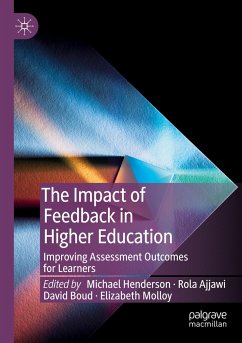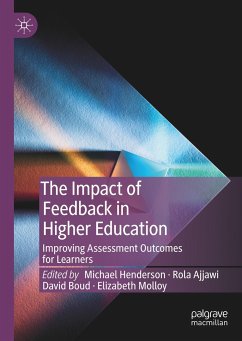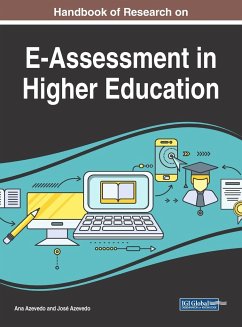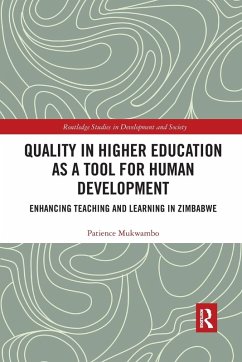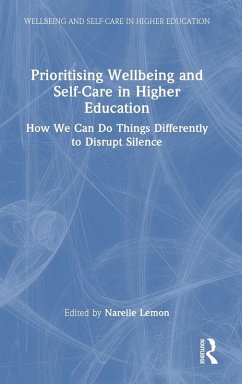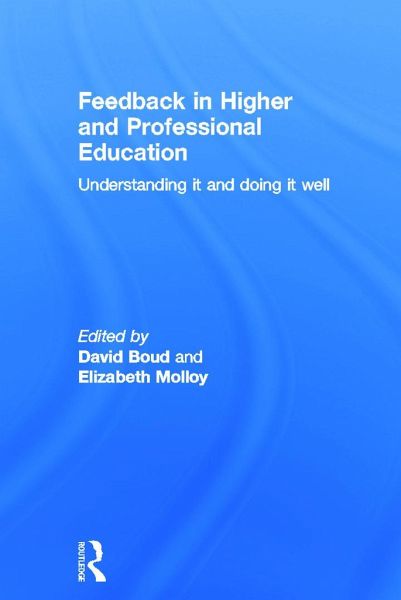
Feedback in Higher and Professional Education
Understanding it and doing it well
Herausgeber: Boud, David; Molloy, Elizabeth
Versandkostenfrei!
Versandfertig in 1-2 Wochen
167,99 €
inkl. MwSt.

PAYBACK Punkte
84 °P sammeln!
Feedback in Higher and Professional Education explores what needs to be done to make feedback more effective. It examines the problem of feedback and suggests that there is a lack of clarity and shared meaning about what it is and what constitutes doing it well. It argues that new ways of thinking about feedback are needed. There has been considerable development in research on feedback in recent years, but surprisingly little awareness of what needs to be done to improve it and good ideas are not translated into action. The book provides a multi-disciplinary and international account of the r...
Feedback in Higher and Professional Education explores what needs to be done to make feedback more effective. It examines the problem of feedback and suggests that there is a lack of clarity and shared meaning about what it is and what constitutes doing it well. It argues that new ways of thinking about feedback are needed. There has been considerable development in research on feedback in recent years, but surprisingly little awareness of what needs to be done to improve it and good ideas are not translated into action. The book provides a multi-disciplinary and international account of the role of feedback in higher and professional education. It challenges three conventional assumptions about feedback in learning: That feedback constitutes one-way flow of information from a knowledgeable person to a less knowledgeable person. That the job of feedback is complete with the imparting of performance-related information. That a generic model of best-practice feedback can be applied to all learners and all learning situations In seeking a new approach to feedback, it proposes that it is necessary to recognise that learners need to be much more actively involved in seeking, generating and using feedback. Rather than it being something they are subjected to, it must be an activity that they drive.




